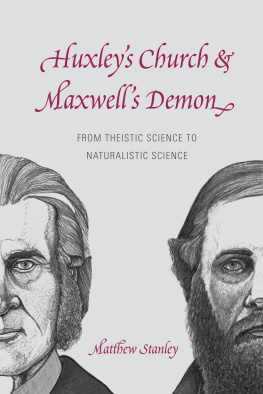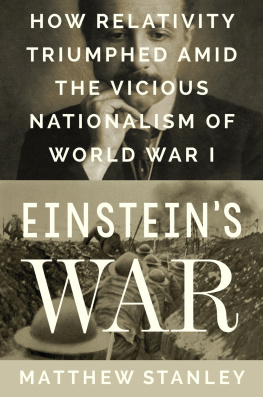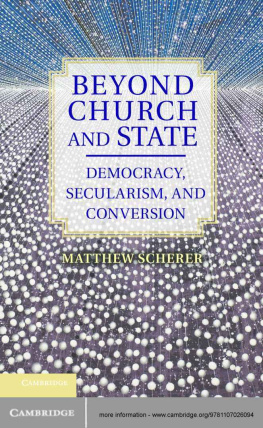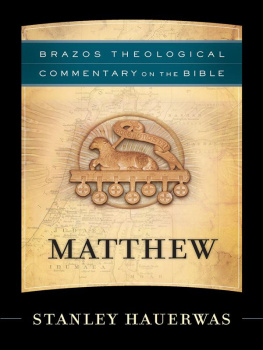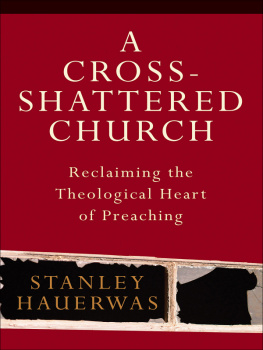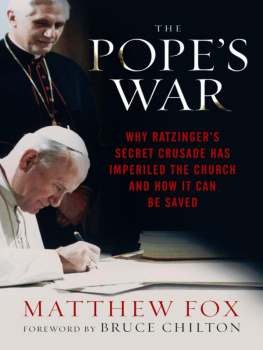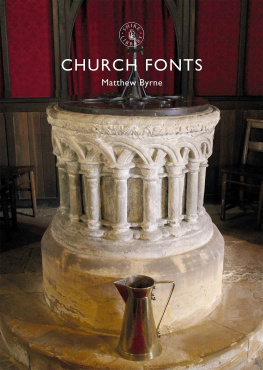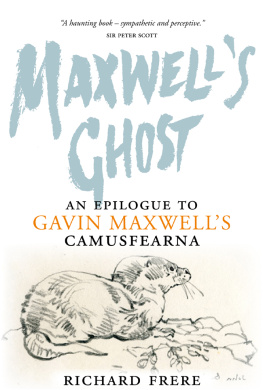Matthew Stanley - Huxleys Church and Maxwells Demon
Here you can read online Matthew Stanley - Huxleys Church and Maxwells Demon full text of the book (entire story) in english for free. Download pdf and epub, get meaning, cover and reviews about this ebook. year: 2015, publisher: University of Chicago Press, genre: Religion. Description of the work, (preface) as well as reviews are available. Best literature library LitArk.com created for fans of good reading and offers a wide selection of genres:
Romance novel
Science fiction
Adventure
Detective
Science
History
Home and family
Prose
Art
Politics
Computer
Non-fiction
Religion
Business
Children
Humor
Choose a favorite category and find really read worthwhile books. Enjoy immersion in the world of imagination, feel the emotions of the characters or learn something new for yourself, make an fascinating discovery.
- Book:Huxleys Church and Maxwells Demon
- Author:
- Publisher:University of Chicago Press
- Genre:
- Year:2015
- Rating:5 / 5
- Favourites:Add to favourites
- Your mark:
- 100
- 1
- 2
- 3
- 4
- 5
Huxleys Church and Maxwells Demon: summary, description and annotation
We offer to read an annotation, description, summary or preface (depends on what the author of the book "Huxleys Church and Maxwells Demon" wrote himself). If you haven't found the necessary information about the book — write in the comments, we will try to find it.
Huxleys Church and Maxwells Demon — read online for free the complete book (whole text) full work
Below is the text of the book, divided by pages. System saving the place of the last page read, allows you to conveniently read the book "Huxleys Church and Maxwells Demon" online for free, without having to search again every time where you left off. Put a bookmark, and you can go to the page where you finished reading at any time.
Font size:
Interval:
Bookmark:
Huxleys Church and Maxwells Demon
From Theistic Science to Naturalistic Science
MATTHEW STANLEY
THE UNIVERSITY OF CHICAGO PRESS
CHICAGO AND LONDON
MATTHEW STANLEY is associate professor at New York Universitys Gallatin School of Individualized Study. He is the author of Practical Mystic: Religion, Science, and A. S. Eddington.
The University of Chicago Press, Chicago 60637
The University of Chicago Press, Ltd., London
2015 by The University of Chicago
All rights reserved. Published 2015.
Printed in the United States of America
24 23 22 21 20 19 18 17 16 15 1 2 3 4 5
ISBN-13: 978-0-226-16487-8 (cloth)
ISBN-13: 978-0-226-16490-8 (e-book)
DOI: 10.7208/chicago/9780226164908.001.0001
Library of Congress Cataloging-in-Publication Data
Stanley, Matthew, 1975 author.
Huxleys church and Maxwells demon : from theistic science to naturalistic science / Matthew Stanley.
pages ; cm
Includes bibliographical references and index.
ISBN 978-0-226-16487-8 (cloth : alk. paper) ISBN 978-0-226-16490-8 (e-book)
1. ScienceGreat BritainHistory19th century. 2. Maxwell, James Clerk, 18311879. 3. PhysicistsGreat Britain. 4. Huxley, Thomas Henry, 18251895. 5. NaturalistsGreat Britain. 6. NaturalismHistory19th century. 7. Religion and scienceGreat BritainHistory19th century. I. Title.
Q127.G4S73 2015
509.2'241dc23
2014010890
 This paper meets the requirements of ANSI/NISO Z39.48-1992 (Permanence of Paper).
This paper meets the requirements of ANSI/NISO Z39.48-1992 (Permanence of Paper).
FOR MAYA AND ZO
Introduction
Every now and then, enemies agree. The philosopher of biology and anticreationist crusader Michael Ruse describes the practice of science thus: Inasmuch as one is doing science, one avoid[s] all theological or other religious references. In particular, one denies God a role in creation. This book is about how we came to believe that.
The intelligent design movement targets naturalism for elimination, explicitly saying that modern science would go with it. The ID adherents proposed alternatives bear little resemblance to what scientists do today, and are essentially completely different enterprises. Science proponents agree that without naturalism, there is nothing recognizable as science. The 2005 Kitzmiller v. Dover court decision in the United States equated naturalism with science to justify keeping intelligent design out of science classrooms, a move consistent with years of judicial precedent. It works better than anything else.
But it was not always this way. Naturalism has a history. The existential connection of naturalism with science is a relatively recent development. Further, naturalism has a specific birthplace. Despite naturalisms high profile in modern American courts, its roots are in Victorian Britain. It was not until the end of the Victorian period (18371901) that naturalism became a common way to think about science, and it was a distinctively British creation. Regardless of this late and local appearance, naturalistic science has come to be seen as universal and eternal. Somehow the long-standing practice of nonnaturalistic science has been forgotten. Science that was developed, considered, and evaluated in deeply religious contexts became sanitized of its divinity. We have come to think of science as obviously naturalistic, without even the possibility of an alternative. Examining the history of how we came to this point will help us understand the meaning and role of naturalism in modern America.
The use of the term itself is usually traced back to Thomas Henry HuxleyCharles Darwins bulldog. In fact, scientific naturalism was originally used by American evangelicals in the mid-nineteenth century as a pejorative term to describe science practiced without reference or deference to religious matters. Huxley appropriated the term for his own purposes to indicate expertise rather than scandal. His first public use of it was in the prologue to his 1892 Essays upon Some Controverted Questions to indicate the form of science that he and his allies had been practicing for decades.physics in particular, were presented by the scientific naturalists as showing that the universe was closed to external forces. Matter and force were posited to be the basic elements of science, not spirit or divine will. From these foundations the scientific naturalists launched attacks against theology and religious institutions, battling for power and cultural prestige. The naturalists had to fight for their definition of science.
The history of naturalism in a broader conceptual sense is more controversial. That is, that no supernatural or divine forces exist.
This distinction is offered by modern scientific naturalists as a way to provide space for religious belief even while doing science without God.
The purpose of the distinction, though, is a valuable one. It draws attention to how the practice of science distinguishes it from ID, rather than relying on specific claims about the physical world. The methodological principles that underlie science are essential to its function. And both ID and its opponents agree that those principles as they operate in science today are distinct from religion.
There were, however, alternatives to this view. In the Victorian period, naturalism was only one possibility of how to practice science. Because science today is naturalistic, it is easy to overestimate the influence of scientific naturalists in the past.science in close embrace with Christianity. This had been the standard in Britain since the days of Robert Boyle and Isaac Newton.
I will refer to this tradition as theistic science. Its practitioners were overwhelmingly Christian (and largely Protestant), but the term Christian science would be confusing for obvious reasons. One could easily divide theistic science into many subcategories, such as Catholic, voluntarist, scriptural, and so forth. However, this would rapidly grow confusing. This book will instead focus on the common traits of theistic science, and how that methodological community functioned despite its internal diversity. It is also important to note that theistic science was quite distinct from what the ID community imagines its adherents version of science to be. Theistic science, like naturalistic science, should be considered in terms of methodology, not in terms of particular theoretical allegiances. Theistic science was a way to do science. This is not a story about science versus religion. All parties discussed here, theist and naturalist, cared deeply about science and wanted it to thrive. Rather, the question was about how religious ideas and values should appear in scientific practice, if at all.
The core of this book explores the relationship between the methodological values of theistic and naturalistic science: that is, the foundational principles on which scientific researchers were expected to base their work. As already discussed, our modern expectation is that theism should dramatically change the way science is done. Here I will argue that this was not the case in Victorian Britain, the birthplace of scientific naturalism. Instead, both theistic and naturalistic science held virtually identical methodological values. While this is remarkable on its own, it is even stranger when we see that each group argued that proper scientific methodology could only be justified in their worldview. That is, naturalistic men of science thought science could only be done naturalistically; theistic men of science thought science could only be done theistically. Despite this split, the foundations of their practices were extremely similar, and they were able to function smoothly (if loudly) as members of the same intellectual communities.
Next pageFont size:
Interval:
Bookmark:
Similar books «Huxleys Church and Maxwells Demon»
Look at similar books to Huxleys Church and Maxwells Demon. We have selected literature similar in name and meaning in the hope of providing readers with more options to find new, interesting, not yet read works.
Discussion, reviews of the book Huxleys Church and Maxwells Demon and just readers' own opinions. Leave your comments, write what you think about the work, its meaning or the main characters. Specify what exactly you liked and what you didn't like, and why you think so.

